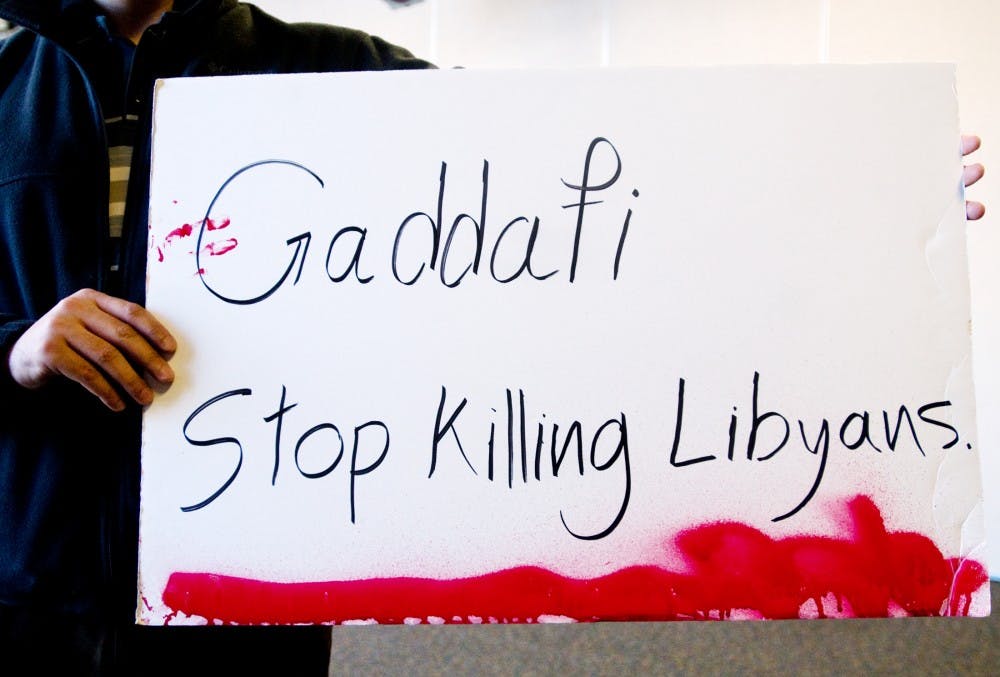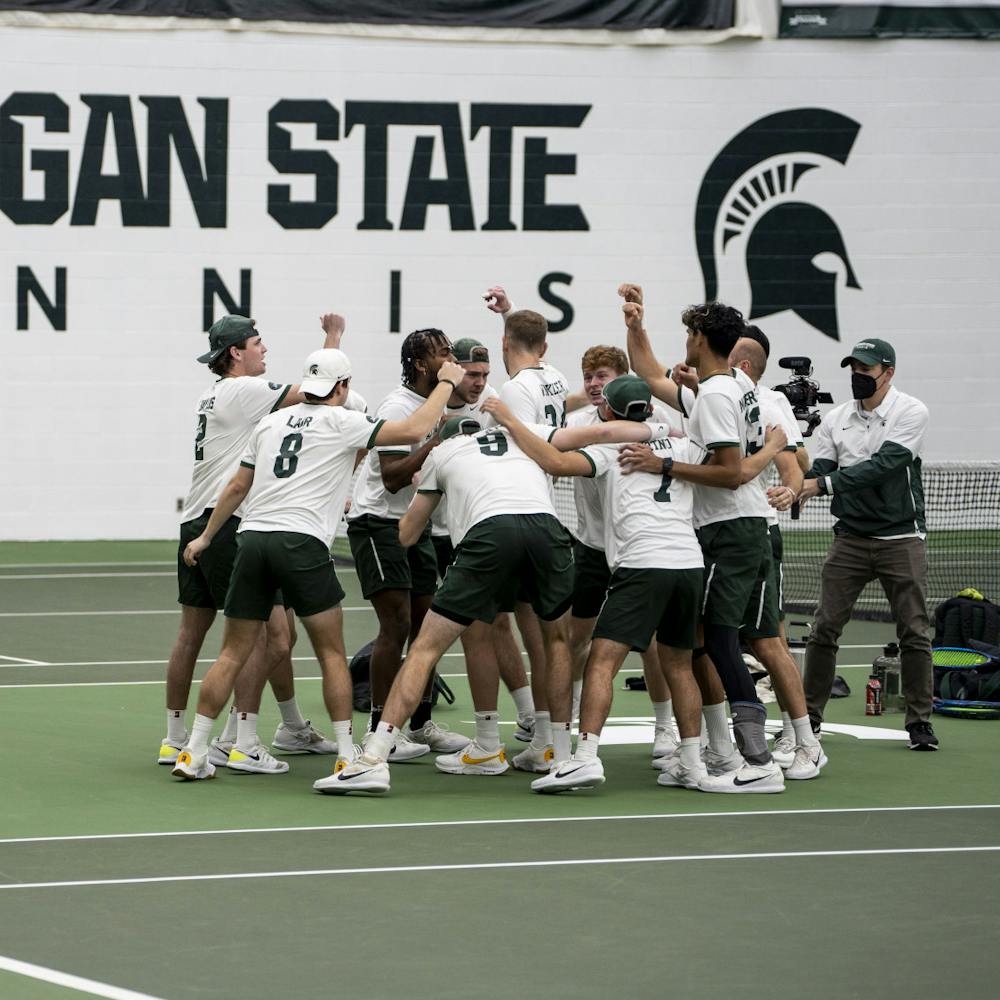Many aspects of the current situation in Libya frustrate Muataz Boker. There is the helplessness — innocent civilians are reportedly being gunned down by machine guns and aircraft. There is his family — his mother, father and brothers all live in the country.
But of the things that frustrate the graduate student, he is most frustrated with the lack of response the country’s violence is receiving.
“We want the world to know what our people are suffering,” Boker said. “We want democracy. We want our universal rights. The tyrant is killing (Libyans) by the masses.”
The leader of Libya since 1969 is Muammar Gaddafi. During his rule, there has been as a lack of human rights in the African country, including freedom of speech, said an MSU student wishing to be identified as Taher to protect his family in Libya.
“You cannot speak of Gaddafi on the street,” Taher said. “They will take you and torture you.”
Yael Aronoff, an assistant professor of international relations, said the Libyans are upset at their government for several reasons.
“There seems to be some economic reasons in terms of limited employment opportunity and unemployment and things of that nature,” Aronoff said. “(It’s) mostly a combination with real political dissatisfaction with the dictatorial rule.”
On Feb. 15, anti-government protests among Libyans turned violent. On Monday, the International Federation for Human Rights estimated the current death toll between 300 and 400 people. Libyan students have placed the number at 600, or even as high as 1,000.
“The only thing I can think of is Hitler,” Boker said. “Hitler is as close to as what he is doing right now to his own people.”
Libya is the latest in a string of Middle Eastern countries, including Tunisia and Egypt, to stage anti-government protests.
“We need a democratic regime,” Taher said. “People can (benefit) from the government and the government can help the people.”
And like MSU Egyptian students not long ago, MSU students from Libya are waiting for President Barack Obama to take action.
“We want to build up the pressure of Gaddafi to leave,” Boker said. “We want to build up the international pressure, and we believe that it starts from Obama.”
Although U.S. Secretary of State Hillary Clinton offered a statement on the events, Omaran, an MSU student who asked his name be changed to protect his family, was angry the government has not done more.
“Obama, he can do anything he did in the past month for Tunisia, for Egypt,” Omaran said. “For Libya, (U.S. government officials) are just saying that they are sorry about the blood.”
However, pressure is on Gaddafi, if not from the Oval Office. Aronoff said about 50 religious leaders have called for some reform of the government. The United Nations also is placing pressure on the Libyan leader, and ambassadors to the country are resigning, not wanting to be associated with the violence in the country. Libya has been suspended from the Arab League, according to reports.
Despite the pressure, Gaddafi announced on Tuesday night that he will not be stepping down and will “die a martyr” for his county.
On Monday, Boker began to call other Libyans he knew. That afternoon, about 20 of them were in front of the rock on Farm Lane, shouting at the top of their lungs, “Down, down Gaddafi!”
Boker said the protest was a way of raising awareness of events occurring on the other side of the world.
“This is the least that we can do,” Boker said. “Many of us, we want to go to Libya to be with our families right now, but we can’t.”
Although some Libyan students feel their country is not receiving adequate attention on the international stage, their protests have had an effect on students. Some students passing by the rock on Farm Lane on Monday turned their heads as they passed. Every few minutes, a car zipping by honked in support. About 100 yards away, at the bus stop outside the Auditorium, supply chain management freshman Ellen Cornelius watched the protestors, whose chants were audible even at a distance.
Cornelius knew the protests had to do with Libya but had not been aware of events taking place in the country until she saw the protestors.
Support student media!
Please consider donating to The State News and help fund the future of journalism.
“We’ve kind of been Googling it while we’ve been standing here,” Cornelius said.
While Libyan students are trying to connect with other students on campus, their eyes are turned to what will happen with their home country.
“I want (Gaddafi) to stop this crazy thing,” Taher said. “I need him to step down. I need people (to) live in peace and get their rights.”
Discussion
Share and discuss “Protests in Libya affect MSU students, Faculty ” on social media.







